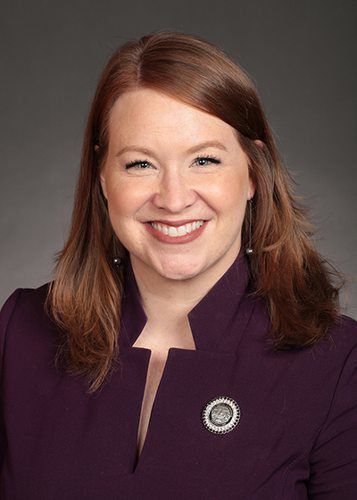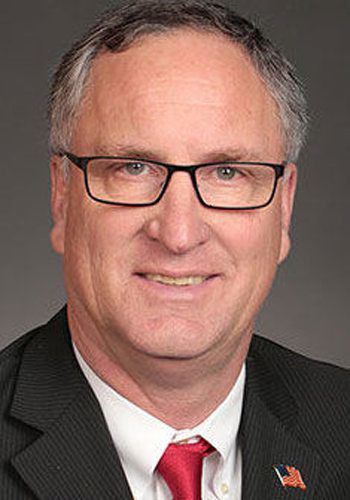Efforts to bolster Iowa’s child care system have garnered early attention in the Iowa Legislature so far this year.
State lawmakers are considering several bills aimed at expanding tax credits for child care expenses, encouraging the expansion of available services and assisting with improved wages for workers. Some of those already have cleared subcommittees examining the initial proposals.
“It’s been our priority in the House the last couple years to do something to help young families with their child care issues,” said Iowa Rep. Lee Hein, R-Monticello, who chairs the House Ways and Means Committee. “COVID magnified those challenges families have to find daycare. Hopefully it will be a priority in the Senate, too.”
Iowa Rep. Lindsay James, D-Dubuque, sat on a House Ways and Means subcommittee this week for a bill that would increase the maximum income threshold for two child care tax credit programs — the Child and Dependent Care Credit and the Early Childhood Development Credit.
Currently, Iowans earning $45,000 or less qualify for tax credits for between 30% and 70% of the expenses they pay for child care annually. The proposal would double that income limit to $90,000.
James joined her two Republican colleagues on the subcommittee to vote in favor of the bill, which subsequently passed the House Ways and Means Committee unanimously.
“It’s allowing for more people to be permitted in the program and be able to afford quality child care,” James said. “That’s a good thing.”
However, James said she thinks this bill and others on the docket are just “scratching the surface” of child care needs. She said her caucus will introduce a similar bill that goes further, allowing parents and guardians making $90,000 or less to qualify for a 100% tax credit on their child care expenses, with credits decreasing after the $90,000 level.
Tara Roddick, child care consultant supervisor for greater Dubuque region of Iowa Child Care Resource and Referral, said the impacts of these assistance programs are wide reaching.
“Even though child care assistance may look like it just benefits the family, if you look at the providers too, that’s their income, too,” she said.
Other bills being considered by legislators aim to help with the physical expansion of child care centers.
One proposal would allow businesses seeking to add new or expanded on-site daycare facilities to tap into the state High Quality Jobs Program. That program provides loans, forgivable loans and tax credits to aid projects that create, improve or expand workplace facilities in Iowa.
Iowa Rep. Steve Bradley, R-Cascade, voted in favor of the bill in a House Economic Growth subcommittee meeting this week. It passed, 2-1.
James also served on a subcommittee for a bill that would create a Workforce Child Care Incentives Program, which would offer tax breaks to developers who complete child care facility projects in Iowa.
Roddick said bills that help expand child care facilities can be a boon for providers.
“Pre-COVID, we were in a spot where we really needed spaces for children,” she said. “That expansion — where can we have a new center go, or if a business wants to offer child care — those were big questions.”
However, the pandemic has brought questions of how to staff potential expansions to the forefront for many providers, Roddick said.
Another bill that has been introduced in the legislature — though it has not been through a subcommittee yet — aims to help improve wages for child care workers.
Greater Dubuque Development Corp. Executive Director Rick Dickinson said his organization supports any effort to increase the access to affordable, quality child care, as it has major impacts on work force development and retention.
However, he noted that current legislative proposals are still early in the process.
“None of these things are going to be solved without a serious infusion of cash,” Dickinson said. “We focus on the availability, affordability and improved quality of child care. The challenge of doing all three of those things were great enough before the pandemic.”




